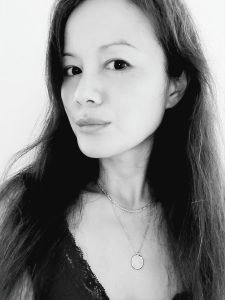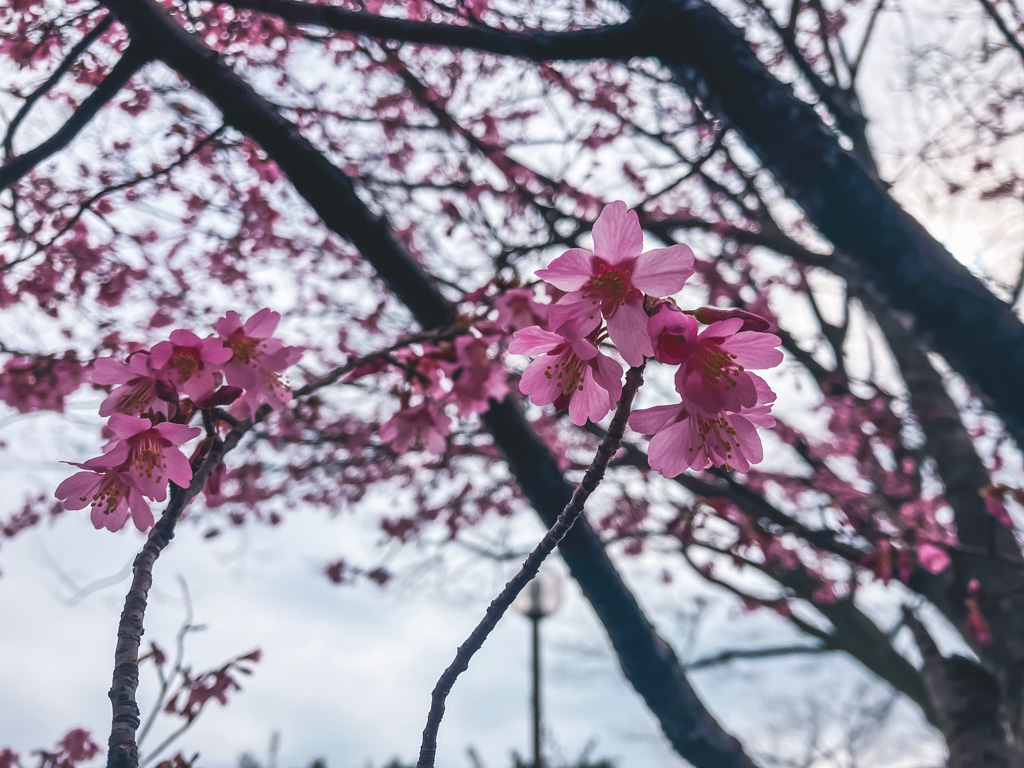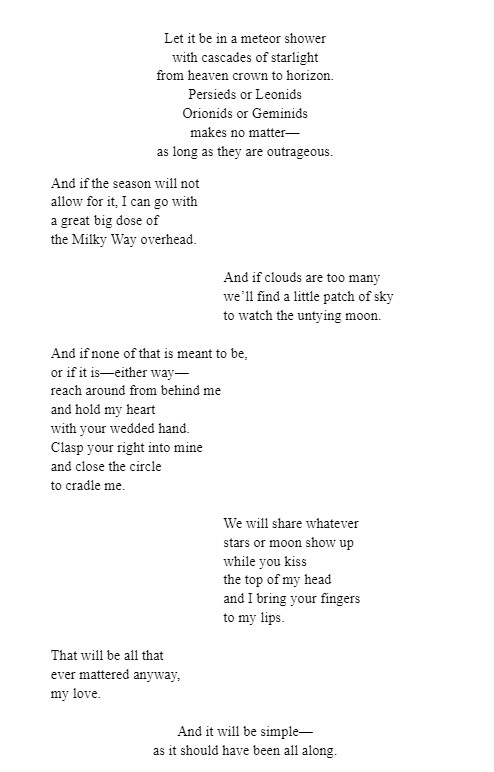Sweet Sorrow
Jennifer Geisinger
Violet watched the tree all year. She was going to miss it when she left. It would be good to cash in, cash out, sell the house, have enough to retire, enough to live on. She didn’t need the headache anymore. It was hard to take a ferry every time she needed to see a doctor, go to chemo or radiation, even though the visits were fewer and farther between. She hated having to put anyone out. It took an entire day sometimes, just to go for a check-up, and the ferries were always late. She fantasized about calling an Uber, of being anonymous. She was becoming so practical in her old age.
Violet wasn’t old. Old enough, though, to not want to pay someone all the time to keep up the lawn, to keep up appearances, to chat at Thriftway, to watch all the new children come through town and have no idea who they were. Her own two couldn’t believe she was selling — a wave of hurt, betrayal. Hurting her kids was enough to make her turn back, to take it all back, to just stay and stay and stay, just in case they decided to return home.
But they couldn’t come back, and shouldn’t come back, and she couldn’t just spend her whole life waiting.
This island was a trap, it really was. It caught her with its beauty, with the strangeness of explaining to people about island living without sounding too proud, too much, too elite. It was hard to explain that she wasn’t one of them, not one of the mansion people, or the summer people. Just an islander. She wasn’t really an islander though, and would never say that around a local. Unless your family had been homesteaders that came before the ferry system, you couldn’t claim that title. Everyone was a newcomer until maybe the twenty-year mark, then you could say you’d been there for “a while.”
Still, she was glad to go, isn’t that strange? She had wanted to move here for so long, and anytime she was away she longed for it, with a longing that she had accepted would always be there, whether or not she was on the island. It squeezed her heart so tight with love, it almost felt like a straightjacket — constricting, taking away her free will, taking away all her choices of love, travel, retirement, excitement. She wouldn’t be happy staying, and she would always regret going. She knew this to the marrow of her bones. She knew it even as she could feel her house falling apart. She was glad the carpenter ants she had held at bay for twenty years would soon be somebody else’s problem, along with the hairline fracture in the foundation, which would only be forgiven because it was a seller’s market. Life on an island is always a seller’s market, because love is blind.
She was glad to leave when the tree was in full bloom. It was prettiest this way. All year it worked toward the big show. She always said they should name the cherry tree. Her children spent half of their childhood climbing it along with all the other children from the neighborhood, long before she had come, and hopefully long after she was gone.
For a few years, her daughter had called the tree Sweet. She would croon to it, and sing “Sweet, Sweet, Sweet,” in the tuneless lullabies of children, which are brand new, but hauntingly familiar. It was just one cherry tree, but it was her favorite part of the whole thing.
She had gotten through the horrid good-bye parties, and promised to visit, knowing deep to the quick that she would not. She would not visit again. It was time for good-bye, the very last one. Even though she knew she could fall, and what a disaster that would be, she went up the little hill in her yard, where the tree lived, and supported her whole self with the trunk. She enveloped herself through the branches, and leaned hard into her, something she realized she had never done in all the years she had watched the flowers bloom and die over and over.
She told the tree to be good, just as she did her toddlers when she left them with a sitter, and breathed in the freedom of a quick getaway. She gave the tree a last little pat, and she hoped it would live and last. Sweet. She realized that she was talking to a tree, but nobody could see her, and if they did, they would understand. She had given so much, and had meant so much.
It was time to go. The hurt became intolerable. It would fade if she could just get on the boat. Thirty years, in and out. Everything else was already gone, already stored, the house ready for the next chapter. She got in her car and drove away from her dream and headed to the ferry dock.
Jennifer Geisinger



